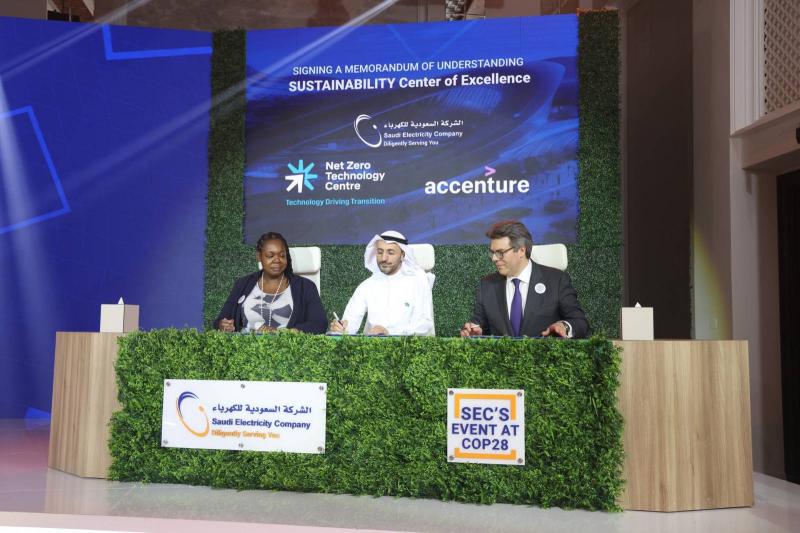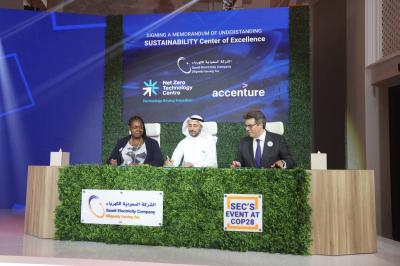The Saudi Electricity Company, the largest producer, transporter, and distributor of electric power in the Middle East and North Africa, announced its goal to achieve net zero by 2050 as part of Saudi Arabia's aim to reach net zero by 2060. The company emphasized its significant contributions to electricity supply, yet it acknowledges its role in combating climate change and its substantial responsibility in achieving the country's net zero goals by 2060. To this end, it has established a strategy for environmental sustainability.
In its official announcement during its "Electricity Day" event, on the sidelines of its participation in the UN Climate Change Conference COP28, the company detailed its foundational practices for environmental stewardship and its efforts to reduce emissions through energy efficiency and combined cycle operations. It is also working on modernizing the power transmission network to a smart grid and developing interconnections with neighboring countries, as well as advancing clean energy, renewable energy projects, and smart metering initiatives.
The company discussed investments in research and development technologies, including carbon capture and storage, and is supporting investments in this area through the issuance of green bonds and backing the voluntary carbon market. The company has also developed a carbon strategy and roadmap towards achieving net zero by 2050.
The Saudi Electricity Company signed seven agreements and memoranda of understanding with several leading global and local companies in various fields (including Lucy, Al Fanar, S.I.L. ITALIA, Saudi Chint, Siemens, Schneider, Huawei, IBM, and GAC) to achieve its objectives for net zero emissions. The signing of these agreements and memoranda reaffirms the company's dedication to contributing to mitigating global warming, addressing climate change, and achieving sustainability in line with the Saudi Green Plan. This initiative aims to reduce carbon emissions, combat pollution, continue the development of research, adopt the best global practices, and utilize modern technologies to cut carbon emissions and mitigate environmental pollution.
The agreements and memoranda of understanding will bolster cooperation in research and development fields focused on emissions reduction, fostering research projects, and innovative technologies that contribute to enhancing energy sustainability. They will also support the development of strategic partnerships for collaborative efforts in creating sustainable environmental solutions, particularly in green energy, carbon elimination, and the use of new technologies across the company’s diverse operations to produce electricity to the highest global standards.
Ibrahim Al-Jarbou, Deputy CEO, stated that these agreements and memoranda will foster collaborations in research, emissions reduction efforts, and the development of innovative projects that contribute to improving energy sustainability while building strategic partnerships for joint efforts in developing sustainable environmental solutions.
In October 2021, Saudi Arabia announced its target of achieving net zero climate emissions by 2060. The Kingdom has embraced various initiatives to support this goal, including the Saudi Green Program and the Quality of Life Program, which are part of the Kingdom's Vision 2030 objectives, alongside numerous environmental initiatives through a circular carbon economy approach, aligning with the Kingdom's developmental plans and enabling its economic diversification.
Net zero "climate neutrality" results from initiatives by each country aiming to transition to a carbon-free economy, counteracting emissions produced from burning fossil fuels through measures such as tree planting.




